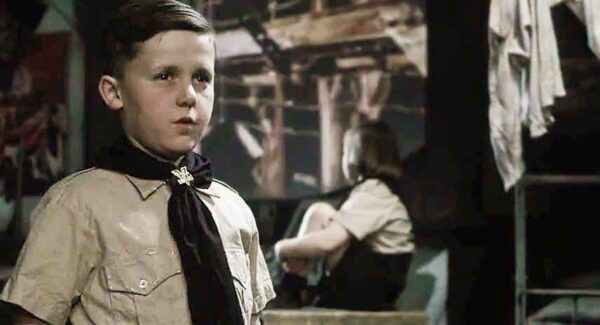1984 was not supposed to be an instruction manual for the left.

DC elementary school gives 4-year-olds books to report racist family members
A Washington, D.C., elementary school is under fire after instructing students as young as 4 years old to go home and identify racist family members.
Students from pre-K through third grade at Janney Elementary School attended an “Anti-Racism Fight Club” presentation with speaker Doyin Richards, according to a letter from the principal of Janney Elementary School, Danielle Singh, written on Nov. 30, according to a report.
“As part of this work, each student has a fist book to help continue the dialogue at school and home,” Singh wrote. “We recognize that any time we engage topics such as race and equity, we may experience a variety of emotions. This is a normal part of the learning and growing process. As a school community we want to continue the dialogue with our students and understand this is just the beginning.”
“[White] people are a part of a society that benefits them in almost every instance,” the book, Anti-Racism Fight Club Fistbook for Kids, argues. It is “as if white people walk around with an invisible force field because they hold all of the power in America.”
“If you are a white person, white privilege is something you were born with and it simply means that your life is not more difficult due to the color of your skin,” according to the book. “Put differently, it’s not your fault for having white privilege, but it is your fault if you choose to ignore it.”
Individuals identified as parents of the students at Janney Elementary School did not take kindly to the instruction.
“Anyone else’s Kindergarten kid freaked out by an anti-racism assembly today? My kid needed to sleep with a light on and the door open tonight,” one parent posted anonymously to the “DC Urban Moms and Dads” online forum. “Anyone know what specifically was talked about? My kid couldn’t relay much except that she was scared.”
Not only are people taking issue with the book’s rhetoric, but the at-home activities the book prescribes are also causing tension, according to the report.
Reading the book “isn’t a spectator sport” and requires “being loud, uncomfortable, confrontational and visible to ensure change is made,” Richards writes.
One such activity involves a series of questions that asks the students, “Where do you see racism in yourself? This requires true soul-searching. Be real with yourself, don’t feel guilt/shame and own it. It’s the first step in becoming an anti-racist.”
In the section, “How to deal with racism from loved ones,” Richards’s work instructs the young readers that “just because someone is older than you doesn’t mean that they’re right all of the time.”
“If someone doesn’t believe that people should be treated equally based on the color of their skin, then they are the problem. Parents need to stop making excuses for that behavior if they truly believe in anti-racism. … Who in your family has racist beliefs? Do you think you can change their ways? What is your strategy for dealing with them?”
In the original version of Richards’s work, the author argues “racism is as American as apple pie and baseball.”
If “the police don’t murder citizens without penalty, then the riots/looting don’t happen,” the original work reads, and it states that “your feelings about Colin Kaepernick serve as a great barometer of how you would feel about Dr. King during the Civil Rights Movement.”
“If you hate Kaepernick now, you’d hate Dr. King if he was alive today. … And do you know what’s funny? In 50 years from now, white people will probably talk glowingly of Kaepernick as they are with Dr. King now. Stop using his quotes to benefit your racism.”
D.C. Public Schools maintains that the original work was not shared with its students.
DCPS “provides joyful and rigorous academic experiences for our students and is committed to advancing educational equity,” the district said in a statement. “In December, a resource link with this content was shared in a parent newsletter at one of our schools. It is not part of our DCPS curriculum and was not shared with students.”
